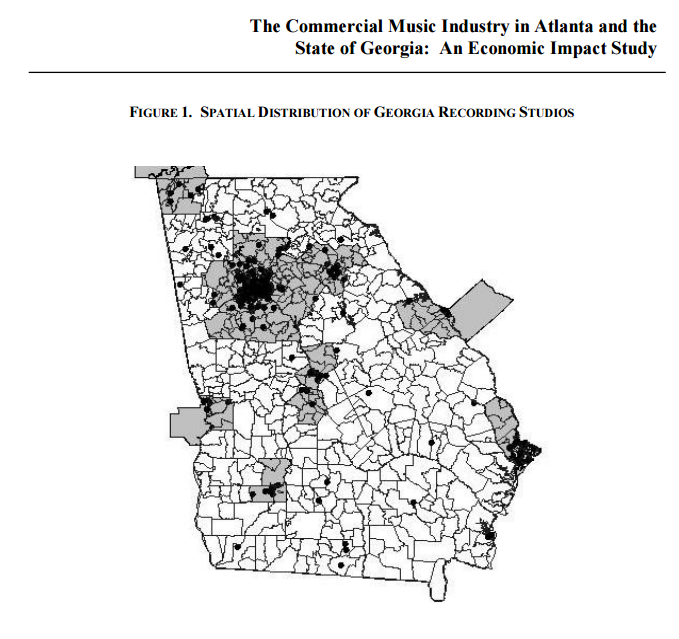Section Branding
Header Content
A3C: 7 Things You May Not Know About The Georgia Music Industry
Primary Content
1. Can you guess which Atlanta artist has the most Rap Grammys? Although both Ludacris and T.I. are tied at three awards, OutKast is currently leading the pack with four. The early 2000s were big for Andre 3000 and Big Boi. They took home the award for Best Rap Album in 2001 and 2003, Best Rap Performance by a Duo or Group in 2001, and again in 2002 for their collaboration with another Atlanta artist, Killer Mike, for their song “The Whole World.”
https://www.youtube.com/watch?v=udmTfK6_aM8
2. The same tax credit that boosts the Georgia film industry can also help the state music industry. The Georgia Entertainment Industry Investment Act was passed in 2008. It offers a 20 percent tax credit to companies that spend $500,000 or more on production and post-production in Georgia. This incentive also includes music videos as well as sound and music recordings for films.
3. According the most recent Georgia Music Economic Impact Study (2011), the Georgia music industry employs 19,955 people. This is an increase from the eleven thousand people employed in the music industry in 2006.
4. The hip hop success of Atlanta didn’t happen overnight. Two of the record labels that put Atlanta on the rap map were LaFace Records and So So Def.
LaFace was founded in 1989 by Clive Davis, Antonio “L.A.” Reid, and Kenny “Babyface” Edmonds. They produced and promoted the music of Toni Braxton, TLC, Usher, OutKast, Goodie Mob, Pink, and more before the company was sold and moved to New York in 2000.
So So Def held down the fort. The label was founded by producer Jermaine Dupri in 1993 and started the careers of Kris Kross, Da Brat, Jagged Edge, Lil’ Bow Wow, and others. The record label is still based in Atlanta today.
https://www.youtube.com/watch?v=010KyIQjkTk
5. The music industry is so important in Georgia that the state House and Senate have formed a music industry study committee in August 2016. The Joint Georgia House and Senate Music Economic Development Study Committee consists of both legislators and music industry members. This committee is supported by the non-profit Georgia Music Partners (GMP), which funded the latest state music economic impact study.
6. Feel free to make some noise because there’s no shortage of sound booths here. In Georgia, there are over three hundred recording studios. The majority of them are in metro Atlanta.
7. The Georgia music industry brings in over $313 million in annual revenue to both state and local governments, according to a 2011 Economic Impact report. The study also found that the music industry has an annual economic impact of $3.7 billion.

